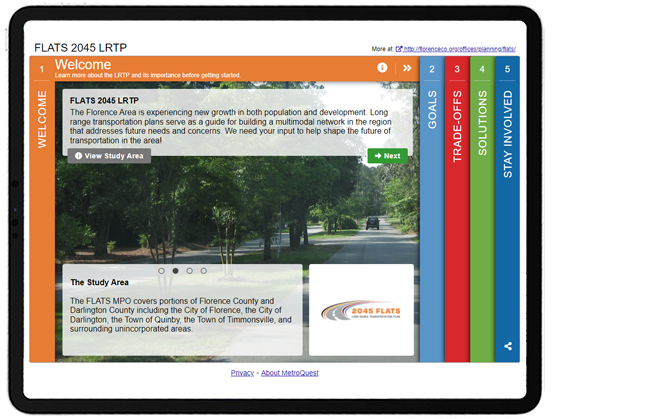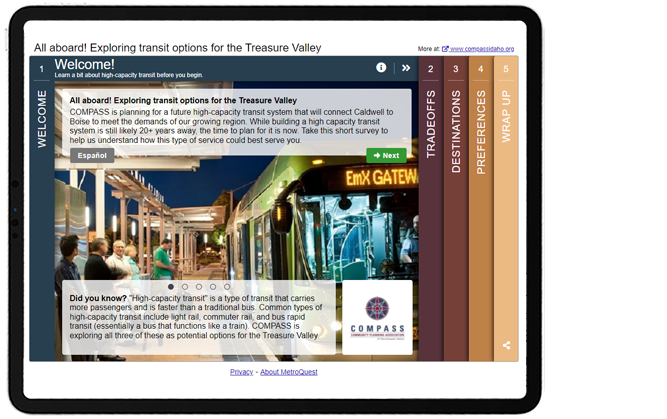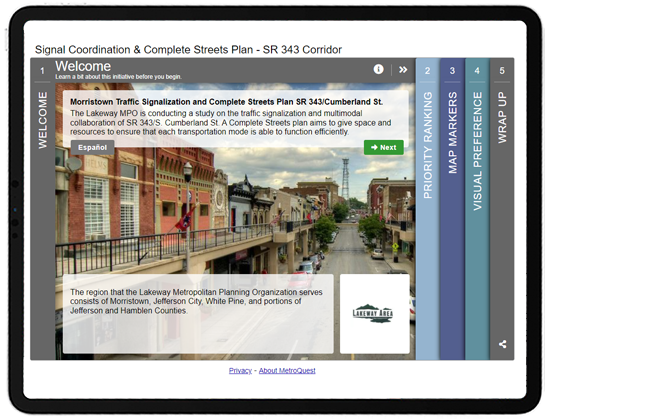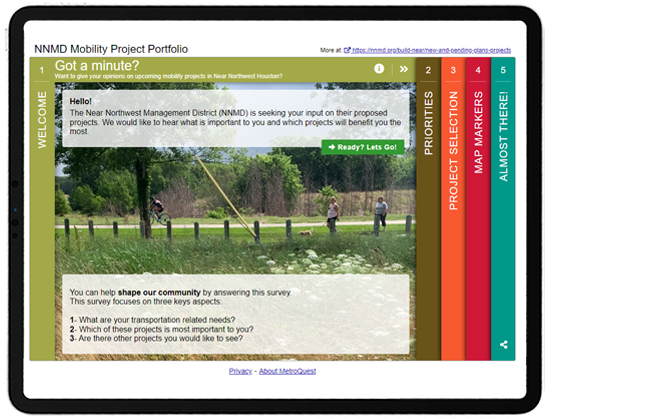A whole new way to engage the community
Government agencies and consultants trust MetroQuest's visual online surveys to collect public input data for more informed and equitable transportation planning.
Designed for planners and PI professionals
With 25+ years of experience and research in public engagement for urban and transportation planning, MetroQuest re-designed online surveys with planning teams in mind.
Sky-High Participation
Designed to optimize participation and completion rates, MetroQuest surveys see over 65% of visitors turn into participants!
Mobile Optimized
MetroQuest surveys are delightful across phones, tablets and kiosks. Broaden your reach to achieve real community insight.
Cost-Effective
Engage thousands, launch unlimited surveys, and drive down your cost-per-participant with an annual subscription.
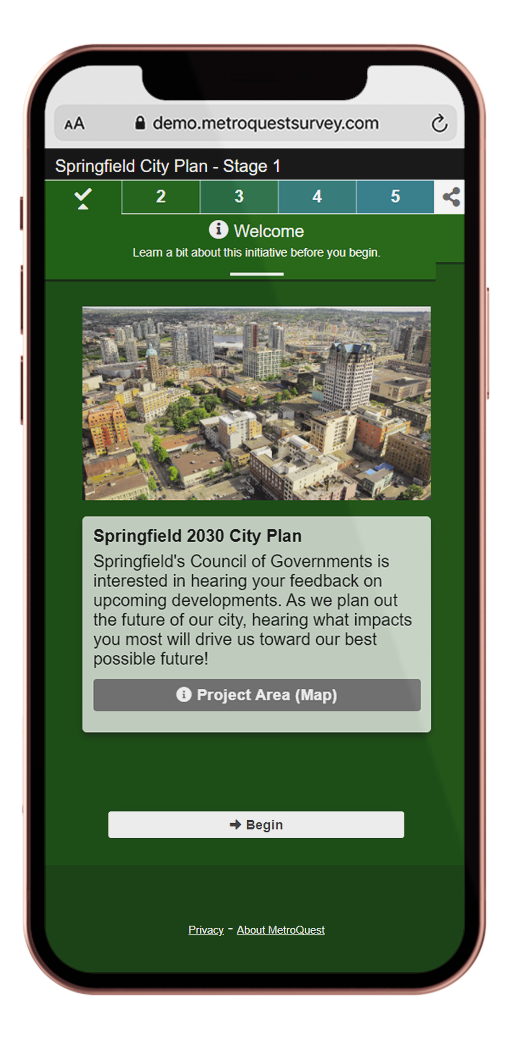
Visual & Interactive
Visuals speak for you. Packed with images, interactive maps, and your branding, MetroQuest surveys are never boring!
Optimized for Engagement
To optimize participation and completion rates, MetroQuest surveys are designed to take just 5 minutes to complete.
Gamified Microlearning
Microlearning moments are designed into each section of your Survey, ensuring that you get informed public input.
Curious about how MetroQuest can serve you? Contact our sales team
Four steps to launching your MetroQuest Survey
Get tangible insights from your diverse community and consistently deliver outstanding public involvement results. It's a simple process to get started!

Choose your template
Get started with our Survey Templates, with 14 different designs optimized for different types of plans, or individually select your own components!

customize your survey
Add project branding, update images and text, and make the Survey your own. Our Support team has your back with examples and troubleshooting.
Test and Launch
When you're happy with the Survey, our Client Services team will take over testing for you, making sure that your Survey is ready to go out!
Get results!
The data is rolling in! As you watch participation numbers go up, keep an eye on turnout, check in on comments, and fine-tune your campaign as needed.
Try your hand at using Metroquest
Take a look at the Survey examples below and reach out to see how we can work with your team!
Learn more about how our Support team can help you make the most of MetroQuest.

LA Metro Engages 6,900+ for NextGen Bus Study!
While agencies aim for true diversity when engaging the public, LA Metro achieved truly incredible results. Read how they were able to achieve equity in the engagement process, uncover insight into transit needs, and gain the confidence of the LA Metro Board of Directors!
